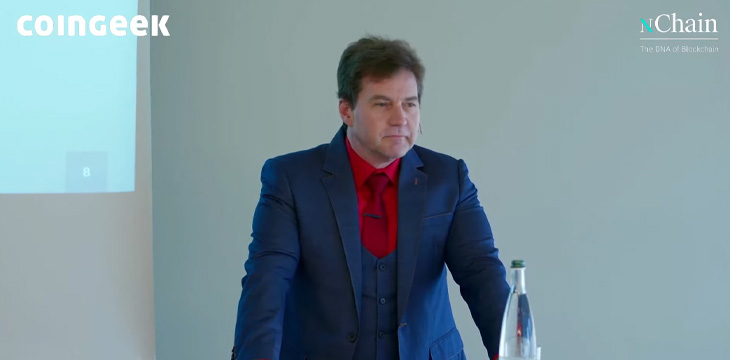|
Getting your Trinity Audio player ready...
|
Dr. Craig Wright opens this session of the third The Bitcoin Masterclasses by discussing Bills of Lading. He looks back to his experience in Mumbai dealing with shipping, telling the class about the hassles associated with the paperwork, stamps, official signatures, etc.
He notes that this would be much more efficient on the blockchain, pointing out that we can tokenize many of the processes, ensuring a record is left of every interaction with documents, containers, etc. We can have records to prove everything, including that a given document is real, and we can ensure that no interference has occurred along the way.
What about people who may move records to other blockchains? Dr. Wright shrugs, “so what?” He points out that if an unbroken chain of records is required, then those who duplicate records and move them to other blockchains won’t have any advantage.
“In mapping transactions, what we want to do is include all the information, including age and where it was manufactured, so we have all of this if we need to recall, sell at a discount, etc.,” Dr. Wright says.
Mapping transactions on the blockchain means we have easy access to data, including for accounting, taxes, legal reasons, etc. We can also be sure where this data is and that it’s stored securely, avoiding outcomes like legal penalties if we’re called upon to produce it and cannot do so. It takes away arguments about what may have happened, which is a significant part of what happens in courts.
Pivoting to atomic swaps, Dr. Wright explains they serve a purpose—exchanging between different parties. If we have goods, information, and services, swaps can also be used to exchange between different parties, he tells us. For example, we could exchange something like a contractual document (held as an NFT).
Swaps also serve an important purpose in fields like manufacturing. Giving the example of cars, Dr. Wright points out that many vehicles have parts worldwide. Being able to securely and reliably swap information across systems involved in processes like this is self-evidently useful. Likewise, it’s helpful to know exactly where we stand with parts such as tires. Having all of these individual pieces of information means we’re less likely to have problems with them.
“It’s not about decentralization for the sake of it…it’s about multiple copies of the same information provably in many locations,” Dr. Wright says. He points out that the concept of decentralization, as understood by cypherpunks, is misunderstood.
Coming to a close, Dr. Wright notes that things such as tokens proving ownership are technically securities. However, those who hold, trade, and sell them won’t get into trouble with regulators like the SEC. Nobody is hoping these securities go up in value, and they’re not selling them for a profit, so they’re exempt.
Watch: The Bitcoin Masterclasses’ Workshop Ideas for implementing Bitcoin blockchain in businesses

 02-25-2026
02-25-2026 




